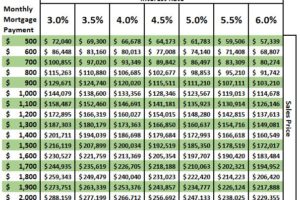1. What is a mortgage broker?
A mortgage broker acts as a middleman between you and potential lenders. The broker’s job is to work on your behalf with several banks to find mortgage lenders with competitive interest rates that best fit your needs. Mortgage brokers have a well-developed stable of lenders they work with, which can make your life easier.
Mortgage brokers are licensed and regulated financial professionals. They do a lot of the legwork — from gathering documents from you to pulling your credit history and verifying your income and employment — and use the information to apply for loans for you with several lenders in a short time frame.
Mortgage brokers are licensed financial professionals. They gather documents, pull your credit history, verify income and apply for loans on your behalf.
Once you settle on a loan and a lender that works best for you, your mortgage broker will collaborate with the bank’s underwriting department, the closing agent (usually the title company) and your real estate agent to keep the transaction running smoothly through closing day.
2. How does a mortgage broker get paid?
Mortgage brokers are most often paid by lenders, sometimes by borrowers, but never both, says Rick Bettencourt, president of the National Association of Mortgage Brokers. Lender-paid compensation plans pay brokers from 0.50% to 2.75% of the loan amount, he says.
You can also choose to pay the broker yourself. That’s called “borrower-paid compensation.”
“If you’re shopping a mortgage broker, you want to ask them, ‘What’s your lender-paid compensation rate [and] what’s your borrower-paid compensation rate’,” Bettencourt says. “They could be the same rate. But you need to do your due diligence [and shop around].”
The competitiveness — and home prices — in your local market will have a hand in dictating what brokers charge. The nation’s coastal areas, big cities and other markets with high-value properties may have brokers fees as low as 0.50%. In the other direction, though, federal law limits how high compensation can go.
“Under Dodd-Frank … brokers aren’t allowed to make more than 3% in points and fees,” Bettencourt says. That restriction was put into the financial regulation law as a result of the predatory lending that triggered the housing crash. It originally applied to mortgages of $100,000 or more, though that threshold has risen with inflation.
3. What makes mortgage brokers different from loan officers?
Loan officers are employees of a lender and are paid a set salary (plus bonuses) for writing loans for that lender.
Mortgage brokers, who work within a mortgage brokerage firm or independently, deal with many lenders and earn the bulk of their money from lender-paid fees.
4. Is a mortgage broker right for me?
A mortgage broker applies for loans with different lenders on your behalf, shops for competitive mortgage rates and negotiates terms.
You can also save time by using a mortgage broker; it can take hours to apply for different loans, then there’s the back-and-forth communication involved in underwriting the loan and ensuring the transaction stays on track. A mortgage broker can save you the hassle of managing that process.
But when choosing any lender — broker, bank, online or otherwise — you’ll want to pay close attention to lender fees. Specifically, ask what fees will appear on page two of your Loan Estimate form in the Loan Costs section under “A: Origination Charges.”
Then, take the Loan Estimate you receive from each lender, place them side by side and compare your interest rate and all of the fees and closing costs.
That head-to-head price comparison among different options is the best way to make the right choice in what is likely to be one of the largest purchases in your life.
5. How do I choose a mortgage broker?
The best way is to ask friends and relatives for referrals, but make sure they have actually used the broker and aren’t just dropping the name of a former college roommate or a distant acquaintance. Learn all you can about the broker’s services, communication style, level of knowledge and approach to clients.
Another referral source: your real estate agent. Ask your agent for the names of a few brokers that he or she has worked with and trusts. Some real estate companies offer an in-house mortgage broker as part of their suite of services, but you’re not obligated to go with that company or individual.
Finding the right mortgage broker is just like choosing the best mortgage lender: It’s wise to interview at least three people to find out what services they offer, how much experience they have and how they can help simplify the process.
Check your state’s professional licensing authority to ensure they have current mortgage broker’s licenses in good standing. Also, read online reviews and check with the Better Business Bureau to assess whether the broker you’re considering has a sound reputation.
NerdWallet writer Hal M. Bundrick contributed to this article.
A previous version of this article misstated the agreements some brokers may have with lenders and how brokers are compensated. This post has been corrected and clarified.




